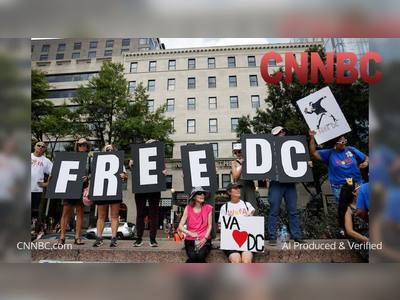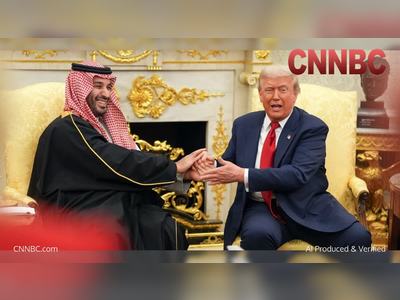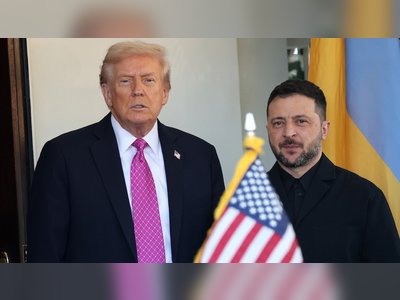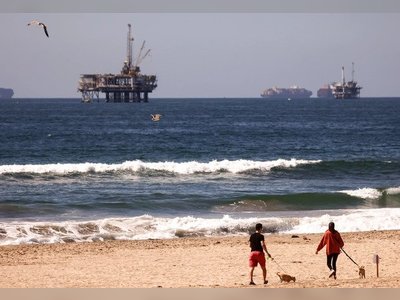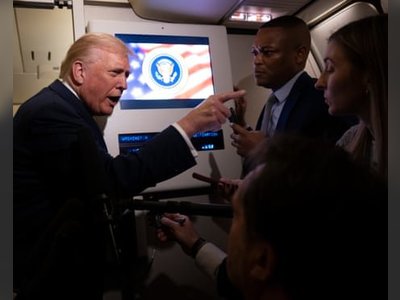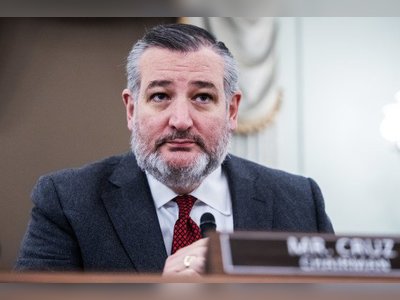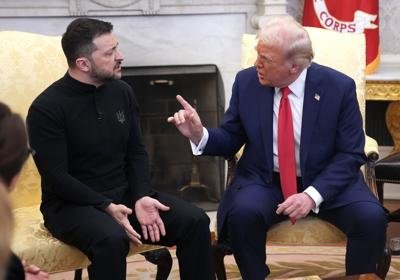
Leaked Trump-Russia Peace Plan Demands Deep Concessions from Ukraine
Draft proposal outlines Ukrainian territorial cessions and wide-ranging incentives for Russia in exchange for an end to the war
A draft peace proposal attributed to President Donald Trump and negotiated with Vladimir Putin’s emissaries calls for sweeping concessions from Ukraine and major rewards for Russia in exchange for terminating the conflict.
Leaked documents reveal that Ukraine would be required to formally recognise Russia’s annexation of Crimea, surrender parts of the Donetsk and Luhansk regions, freeze the front lines in Zaporizhzhia and Kherson, and abandon its bid to join the North Atlantic Treaty Organization.
In return, Russia would be readmitted to the Group of Eight, sanctions would be lifted, and a reconstruction fund—supported by seized Russian assets—would be established for Ukraine.
Additional terms include a reduction of Ukraine’s armed forces to approximately six hundred thousand troops, a ban on NATO bases on Ukrainian soil, and international oversight of the Zaporizhzhia nuclear plant, with electricity supplied jointly to Ukraine and Russia.
The proposal was reportedly developed through behind-the-scenes talks between U.S. and Russian officials, excluding Ukraine and most European partners.
The appearance of the plan has triggered alarm in Kyiv and Brussels: Ukrainian President Volodymyr Zelenskyy swiftly rejected any deal that sacrifices sovereignty or permanent territorial loss, while European allies warned that rewarding territorial aggression would undermine wider security architecture.
While the Trump administration has not officially confirmed the details, the appearance of this draft highlights Washington’s eagerness to broker a settlement and President Trump’s prioritisation of ending the war.
The proposal also underscores a strategic pivot: shifting from military stalemate towards economic inducements and geopolitical compromise.
If adopted, it would represent a dramatic realignment of U.S. policy and reshape the map of post-war Europe.
Much now depends on Ukraine’s response: whether it will engage on the framework or reject it outright—and how Europe will respond to a proposed U.S.-Russia deal that bypasses its long-standing support for Ukraine’s territorial integrity.
Leaked documents reveal that Ukraine would be required to formally recognise Russia’s annexation of Crimea, surrender parts of the Donetsk and Luhansk regions, freeze the front lines in Zaporizhzhia and Kherson, and abandon its bid to join the North Atlantic Treaty Organization.
In return, Russia would be readmitted to the Group of Eight, sanctions would be lifted, and a reconstruction fund—supported by seized Russian assets—would be established for Ukraine.
Additional terms include a reduction of Ukraine’s armed forces to approximately six hundred thousand troops, a ban on NATO bases on Ukrainian soil, and international oversight of the Zaporizhzhia nuclear plant, with electricity supplied jointly to Ukraine and Russia.
The proposal was reportedly developed through behind-the-scenes talks between U.S. and Russian officials, excluding Ukraine and most European partners.
The appearance of the plan has triggered alarm in Kyiv and Brussels: Ukrainian President Volodymyr Zelenskyy swiftly rejected any deal that sacrifices sovereignty or permanent territorial loss, while European allies warned that rewarding territorial aggression would undermine wider security architecture.
While the Trump administration has not officially confirmed the details, the appearance of this draft highlights Washington’s eagerness to broker a settlement and President Trump’s prioritisation of ending the war.
The proposal also underscores a strategic pivot: shifting from military stalemate towards economic inducements and geopolitical compromise.
If adopted, it would represent a dramatic realignment of U.S. policy and reshape the map of post-war Europe.
Much now depends on Ukraine’s response: whether it will engage on the framework or reject it outright—and how Europe will respond to a proposed U.S.-Russia deal that bypasses its long-standing support for Ukraine’s territorial integrity.


